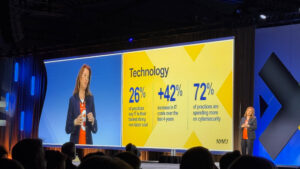In 2016, CMMI undertook a 6-year pilot program, the Next Generation Accountable Care Organization (NGACO) Model. Last month, CMS released their final evaluation of the program. NGACOs provided part of the basis for the ACO REACH Model that is CMMI’s latest innovation in value-based care. It is vital to understand the lessons learned from NGACOs to guide ACO development going forward.
Overall, the NGACOs pilot was a success. Gross healthcare spending was decreased due to a reduction in acute care hospitalizations, ambulatory visits, ED utilization, and SNF days. However, as the savings these changes created were shared with the over 91,000 providers participating in a NGACO, the net spending did not change. But that means that the savings went back to the providers who worked hard to create the desired outcomes. Patient quality was not decreased, annual wellness visits increased, more care coordination was provided, and practices were able to access expanded data analytics. The identified pathways for the greatest reduction in spend included embedded care management in inpatient hospitals, beneficiary education, tracking patients most at risk for hospital readmissions, identifying gaps in patient care. Savings increased for every year of the 6-year pilot period, which included the COVID-19 pandemic.
The results of the NGACO pilot should be encouraging as healthcare reform moves forward towards a greater uptake of value-based care. It shows that CMS’ goals of improving outcomes while reducing spend can be accomplished, though there remains great room for improvement. A shared-risk arrangement must be found that both incentivizes providers while reducing net healthcare spending. Standardized, universal models of care and payment must be developed that allows all providers to succeed (several poor-performing NGACOs self-selected out of the pilot). The model must be adaptable for all practice types (the majority of NGACOs were affiliated with hospitals). The current ACO REACH model seems to incorporate at least some of these, but providers partnering with a ACO can learn from the experiences of NGACOs. There is no need to re-invent the wheel.
For more information and resources about ACOs in general, visit the Acclivity ACO page or ACO REACH page.
Source Material:
“Evaluation of the Next Generation Accountable Care Organization (NGACO) Model: Final Report” by Lowell, KH on behalf of NORC at the University of Chicago in January 2024 and available at https://www.cms.gov/priorities/innovation/data-and-reports/2024/nextgenaco-sixthevalrpt



